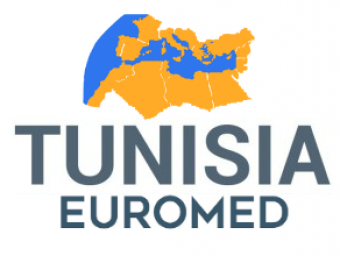Trudy Rubin
It has become the new “normal” for President Trump to undercut his secretaries of state and defense without warning. On a whim. With a tweet or a phone call.
But the latest example is truly extraordinary: Trump’s adulatory April 15 phone call to a Libyan general who had just attacked the Libyan capital of Tripoli and upended scheduled U.N. peace talks.
The call was made one week after Secretary of State Mike Pompeo issued a statement in which he denounced Gen. Khalifa Hifter’s assault. Pompeo insisted bluntly that there was “no military solution to the Libya conflict” and that “a political solution is the only way to unify the country.”
So why would the president backhand a cabinet secretary who has bent over backward to support him? And why would Trump endorse a general who wants to plunge Libya back into civil war?
The answer lies in the president’s personal affinity for strongmen — on every continent. A faith that has proven woefully misplaced and in Libya could lead to disaster. But that doesn’t appear to dissuade Trump.
The Libyan tale is the latest example of how the president’s admiration for autocrats has prompted him to make sudden policy shifts that have backfired. (Think Trump’s abrupt decision to pull all U.S. troops out of Syria, after a phone call request from Turkish President Recep Tayyip Erdogan, a move that has already soured).
But the Libya case is especially instructive.
A bit of history: After longtime dictator Muammar Gaddafi was killed in 2011, a fractured Libya became a haven for warring militias, Islamist terrorists, and smugglers of refugees. Eight years later, the country remains split between a U.N.-backed Government of National Accord and a Hifter-backed administration in the east of the country.
So-called Field Marshal Hifter has grandiose ideas. A onetime supporter of Gaddafi, he went into exile in Virginia and obtained U.S. citizenship. Then he returned to Libya in 2011 to help overthrow the dictator. Now he commands a patchwork militia army which has had some successes in winning control of oil fields and quashing terrorist groups in Libya’s east and south.
But Hifter has little purchase in Western Libya, home to most of the country’s population. So the best hope for Libya remains a negotiated solution, in which Hifter could play a prominent role. Yet rather than exchange his military gains for a strong bargaining position, he has held out to conquer the rest of Libya.
Claiming to be the man who can vanquish all Islamists, Hifter has won support from Egypt’s president Abdel Fattah el-Sisi, along with the leaders of the United Arab Emirates and Saudi Arabia. Ditto from Vladimir Putin. All autocrats whom Trump admires.
The problem is that Hifter can’t deliver. But I get ahead of my story.
First, let’s look at why Trump undercut a U.N. diplomatic process that was finally gaining momentum.
Two days after Pompeo denounced Hifter’s assault on Tripoli, Egypt’s el-Sisi visited the White House. The widespread assumption is that el-Sisi urged Trump to back Hifter as the tough guy who could unite Libya by force.
Trump then phoned Hifter and praised his “significant role” and their “shared vision,” according to a White House readout of the call. Trump’s praise encouraged the general’s assault which led to cancellation of the planned U.N. peace talks.
White House support for Hiftar went further: On April 18, the United States joined Russia in rejecting a U.N. Security Council resolution calling for a ceasefire in Libya – a resolution drafted by the British.
Yes, you read that correctly, Trump plus Putin vs. Pompeo and Great Britain. In support of a violent assault on Tripoli that could restart the Libyan civil war.
The problem, says the Brookings Institution’s Jeffrey Feltman, is that “Hifter is not the savior he claims. He is a strongman poseur.”
Feltman, formerly a top State Department Mideast official and U.N. undersecretary for political affairs, adds that “Hifter’s army has a lot of Salafists. He claims he will bring stability but he will embolden extremists and marginalize moderates.”
A long battle for Tripoli, says Feltman, “would be horrific, with the kind of civilian casualties and destruction we have seen in Syria.” Rather than unify Libya it would create further instability that increases the opportunities for terrorists.
And then there is the Russia angle. Moscow has provided Hifter’s forces “with all kinds of equipment, people, training, and the like,” Marine Gen. Thomas Waldhauser, head of U.S. Africa Command, said in testimony to Congress. Probably the Kremlin has visions of future naval basing rights in Libya to strengthen its position vis à vis NATO in the Eastern Mediterranean.
If Trump knew anything about Libya, he would have shied away from endorsing Hifter, or pressed him to join the negotiations. Instead Trump chose to support and flatter the big man.
So now we have the United States, hand in glove with Russia, urging on a general who dreams of becoming a new Gaddafi but will cause more chaos in Libya.
Another case of Trump autocrat envy that is bound to boomerang.
